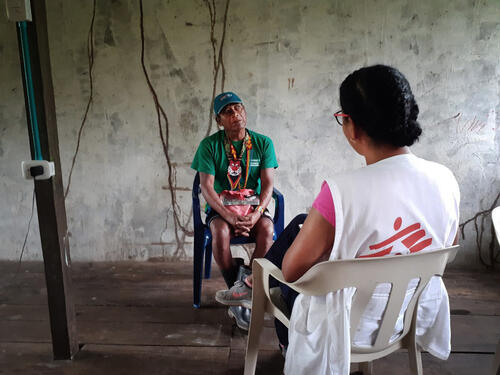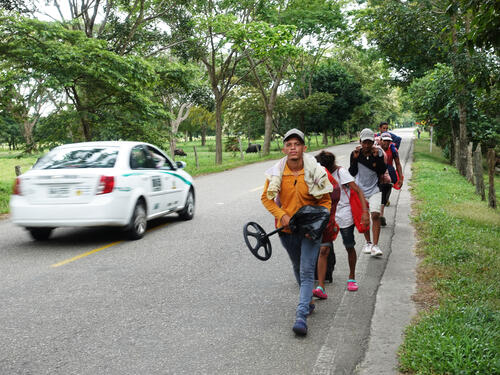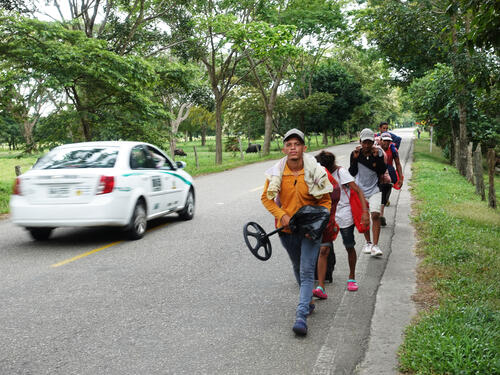Colombia decriminalised abortion in some circumstances in 2006 yet only around 10 per cent of terminations of pregnancies are safely performed in health structures. Unsafe abortions are responsible for some 10 per cent of Colombia's maternal deaths. MSF has published a report in Spanish Aborto no seguro, mujeres en riesgo (Unsafe abortion, women at risk), highlighting the barriers women encounter when seeking to terminate their pregnancies. It is based on information collection during the implementation of our safe abortion service in Colombia in 2017 and 2018.
Executive summary
Unsafe abortion is one of the five leading causes of maternal mortality worldwide, along with postpartum haemorrhage, sepsis, birth complications and hypertensive disorders. Of all these, unsafe abortion is the only one that is completely avoidable.
To address the death rate from unsafe abortion in Colombia, in 2006 the Constitutional Court of Colombia took the significant step of decriminalising abortion in certain circumstances (when the woman’s health is in danger, when the foetus is malformed and where the pregnancy is a result of rape).
Since then, in accordance with Colombian law, all health-promoting entities and institutions providing health services – whether public or private, secular or religious – are obliged to provide voluntary terminations of pregnancy to women who meet these criteria.
However, although no concrete data exists on the situation in Colombia, it is estimated that of the 400,000 abortions performed in the country each year, just 8 to 10 per cent are carried out in health facilities where a safe abortion is guaranteed, according to the Guttmacher Institute. Unsafe abortions, meanwhile, are estimated to be responsible for 10 per cent of maternal deaths and some 130,000 complications annually.
The consequences of unsafe abortion constitute a medical emergency. This is why, as a medical and humanitarian organisation, Médecins Sans Frontières (MSF) decided in 2016 to provide a safe abortion service in its projects in Tumaco and Buenaventura and in the activities of its emergency response team, with the aim of reducing mortality and suffering caused by unwanted pregnancies and unsafe abortions.
The findings of this report are based on information collected during the implementation of MSF’s safe abortion service in 2017 and 2018, during which 428 women and girls requested terminations of pregnancy and received this service from MSF. This report is also based on testimonies from patients who experienced obstacles as they sought safe abortions, and on the experiences of MSF staff who cared for patients.
27 %
27%
53 %
53%
The data in this report cannot be extrapolated directly to the wider situation around access to voluntary termination of pregnancy in Colombia, but it does provide a snapshot of the situation amongst populations receiving assistance from MSF in the country.
Based on the information obtained by MSF, it is clear that, despite the Constitutional Court’s ruling, access to safe abortion in Colombia remains very limited.
88 per cent of our female patients report having faced at least one obstacle when trying to access a voluntary termination of pregnancy.
53 per cent of our female patients report having faced social obstacles, such as harassment or social stigma by family members and friends; economic or geographical obstacles; or a lack of information about the law regarding the voluntary termination of pregnancy.
27 per cent of our female patients who requested a safe abortion in a health facility had their request refused, and were exposed to situations including prejudice; breach of confidentiality; verbal abuse; wrong information or misrepresentation of the law regarding abortion; medical staff who refused to provide abortions because of their personal beliefs; and obstacles, delays and system failures due to a lack of trained staff or a lack of medications.






